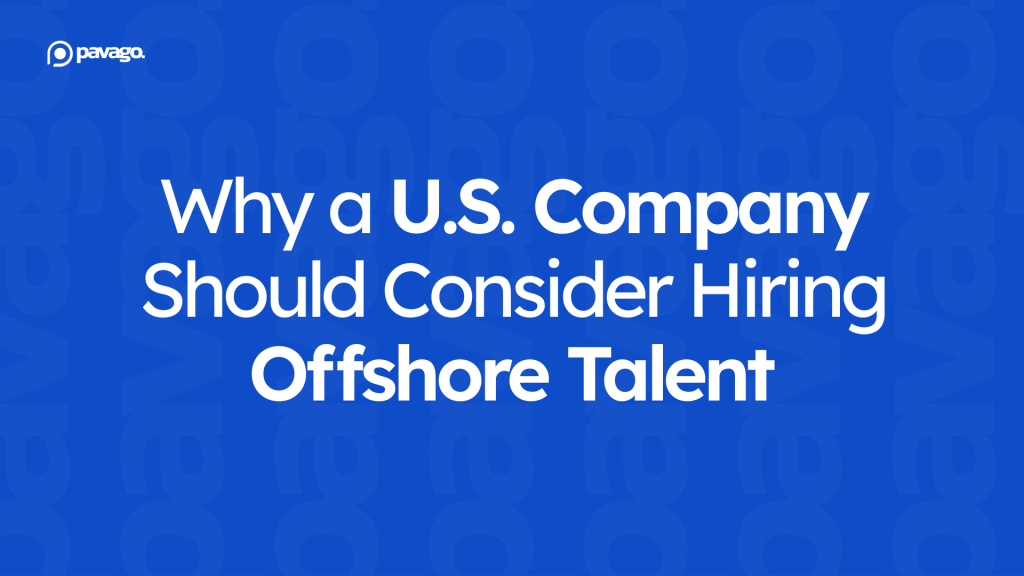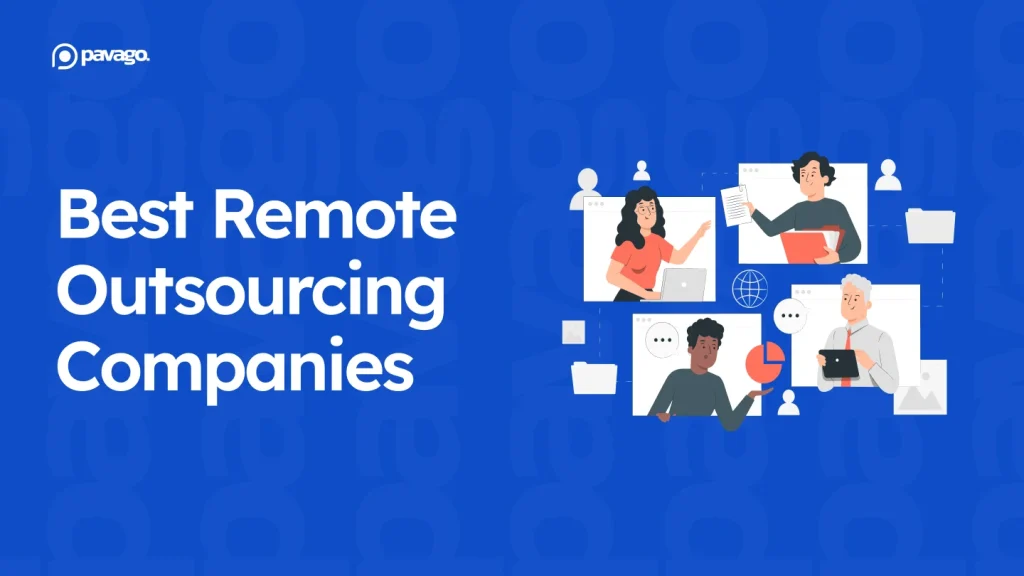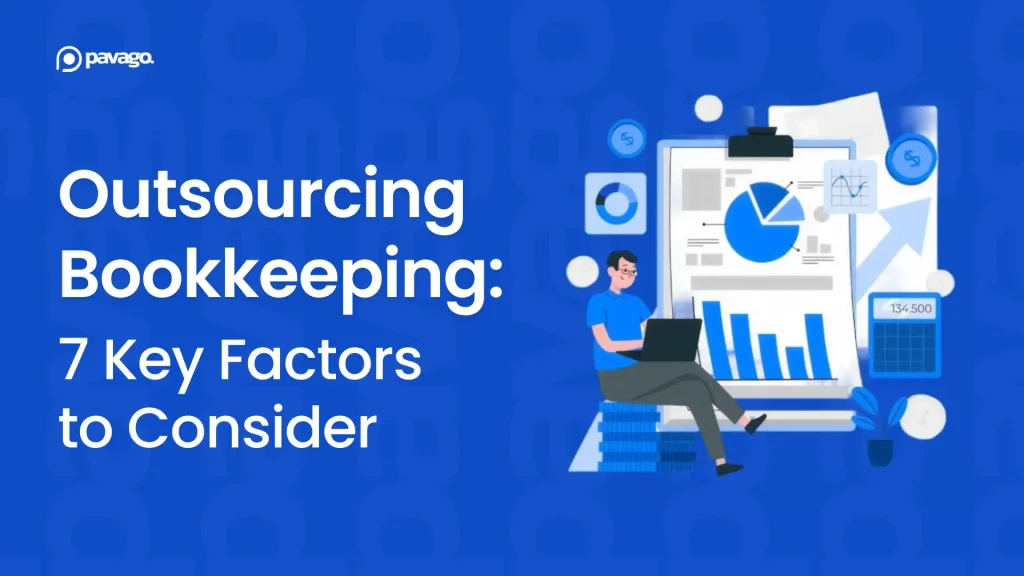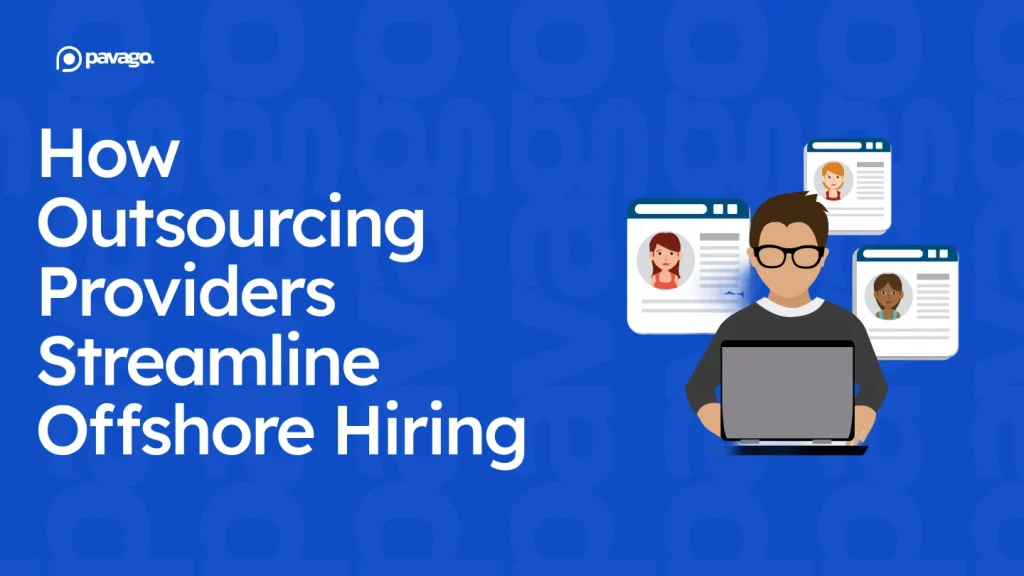Are you looking for ways to maximize your company’s potential without stretching your budget too thin? Hiring offshore talent could be your answer.
With rising labor costs and a competitive job market in the U.S., businesses are turning to global talent pools to stay ahead. Imagine accessing top-notch professionals worldwide, reducing costs, and boosting productivity — all without compromising quality.
Here’s what we’ll cover in this article:
- Benefits of Hiring Offshore Talent
- Potential Drawbacks of Offshore Hiring
- Key Qualities to Look for in Offshore Talent
- Effective Strategies for Hiring Offshore Talent
- Best Practices for Managing Offshore Teams
Want to hire the best global talent at fair prices with absolutely no risk?
Pavago offers a pool of top-tier, pre-vetted global talent with forever replacements guaranteed.. 👀
Advantages of Hiring Offshore Talent

Unlocking the benefits of offshore talent can significantly boost your small to medium-sized business’s efficiency and growth.
Cost Savings
One of the most significant advantages of hiring offshore talent is the cost savings. Offshore locations typically have lower labor costs than the U.S. This means you can hire highly skilled professionals at a fraction of the price. Additionally, overhead and operational expenses are reduced, as remote work eliminates the need for office space and other related costs. Your company can enjoy substantial financial benefits by tapping into a global workforce.
💡 Pavago offers affordable recruitment plans, allowing SMBs to access top talent for 70% less than traditional costs.
Access to a Larger Talent Pool
Hiring offshore gives you access to a larger talent pool. Skilled professionals are available worldwide, offering specialized expertise in various fields. This is particularly beneficial when addressing local talent shortages. By broadening your search to international recruitment, you can find the best fit for your company’s needs, ensuring you have the right skills for every role.
Increased Productivity
Offshore hiring can lead to increased productivity. Different time zones mean your business can operate round-the-clock, ensuring faster project turnaround times. This diversified working schedule enhances efficiency and allows for continuous project progress, even when your local team is off the clock.
Technological Advancements
Leveraging global tech infrastructure through offshore hiring ensures you benefit from technological advancements. Improved communication and collaboration tools make it easy to manage remote teams effectively. Additionally, accessing cutting-edge technology and innovation from around the world keeps your business competitive and forward-thinking.
Cultural Diversity and Innovation
Cultural diversity brings fresh perspectives and diverse ideas to your company. This diversity enhances creativity and drives innovation and problem-solving abilities, fostering an inclusive team environment. Building a culturally diverse team leads to innovation, as different viewpoints and experiences contribute to unique solutions and strategies.
Focus on Core Business Functions
Outsourcing non-core activities to offshore teams allows your in-house staff to concentrate on core business functions. This focus on strategic initiatives streamlines business processes and improves overall efficiency. By delegating routine tasks, your team can prioritize high-impact projects that drive growth and success.
💡 Pavago provides comprehensive training for new hires, ensuring a smooth transition and immediate productivity.
Disadvantages of Hiring Offshore Talent

While hiring offshore talent has many advantages, there are also some potential drawbacks to why USA companies should consider hiring offshore talent, especially for small to medium-sized businesses (SMBs).
Communication Barriers
Potential language differences and time zone challenges can lead to miscommunication risks. These barriers might hinder smooth interactions and collaboration, making it difficult to maintain effective communication with your offshore team.
Cultural Differences
Varied work practices and business etiquette can cause integration challenges and possible misunderstandings. These cultural differences can disrupt team harmony and workflow, making it essential to bridge these gaps to ensure seamless teamwork and effective collaboration.
Quality Control
Ensuring consistent quality across borders can be challenging for SMBs. Managing remote teams and relying on remote monitoring tools can complicate quality assurance, making it difficult to maintain the high standards your business requires.
Legal and Regulatory Compliance
Navigating different legal systems and complying with local labor laws are crucial. Managing international contracts adds another layer of complexity to offshore hiring, requiring careful attention to legal and regulatory compliance to avoid potential issues.
Security Risks
Data protection and cybersecurity concerns are significant. Ensuring secure communication channels and protecting intellectual property are vital to safeguarding your business, especially for SMBs that may lack extensive IT security resources.
💡 A lot of these worries are mitigated by Pavago as we hire people according to your specific needs and provide thorough onboarding to ensure perfect integration. Our approach helps SMBs overcome common offshore hiring challenges, ensuring smooth communication, cultural alignment, quality control, compliance, and security.
What Skills to Look for in an Offshore Hire

When considering hiring offshore talent, it’s crucial to identify candidates who will seamlessly integrate into your company and contribute to its success. Here’s what to look for in an offshore hire to ensure they become a valuable asset to your business, along with practical tips on assessing these qualities.
Key Skills and Qualifications

Technical proficiency and relevant experience are paramount. Look for offshore marketing professionals with a strong background in the specific skills your business needs. Whether it’s software development, accounting, or marketing, ensure they have the expertise to meet your requirements.
👉 Tip: Use technical tests or sample projects during the interview process to evaluate their skills practically.
Strong communication and language skills are essential for effective communication across different time zones and cultural backgrounds. This helps maintain clear communication and reduces the risk of miscommunication, which is a common concern in offshore hiring.
👉 Tip: Conduct a portion of the interview in a collaborative setting, like a mock team meeting, to observe their communication style and clarity.
Cultural fit and adaptability are crucial for integrating offshore talent into your existing team. Assess their ability to adapt to your company’s culture and work practices, ensuring they can contribute positively to your organization’s environment.
👉 Tip: Ask behavioral questions while interviewing offshore candidates to understand how they’ve adapted to business challenges and different work environments in the past.
A proven track record of remote work success indicates that the candidate is comfortable working independently and can manage their responsibilities effectively without direct supervision. This is particularly important for small businesses that rely on remote teams to maintain productivity.
👉 Tip: Request references from previous employers who can attest to the candidate's remote work performance and reliability.
Personal Attributes
Self-motivation and discipline are key traits for offshore employees. They need to be driven to complete tasks efficiently without constant oversight, which is vital for maintaining productivity in a remote setting.
👉 Tip: Inquire about their daily routine and how they structure their workday to ensure they can stay on task independently.
Problem-solving abilities are critical for overcoming the unique challenges that arise in remote work environments. Offshore professionals should be able to address issues independently and find innovative solutions to problems.
👉 Tip: Present a real or hypothetical problem during the interview and ask them to walk you through their problem-solving process.
Time management skills are essential for handling tasks effectively across different time zones. Offshore hires must manage their schedules well to stay competitive and ensure the timely completion of projects and alignment with your business operations.
👉 Tip: Ask candidates how they prioritize tasks and manage deadlines, and look for evidence of these skills in their past roles.
The ability to work independently and in a team is important for balancing solo tasks with collaborative projects. This ensures that the offshore team members can contribute effectively whether they are working alone or as part of a group.
👉 Tip: Discuss past projects where they had to work both independently and as part of a team, and ask for examples of their contributions in both settings.
How to Hire an Offshore Talent?

Hiring offshore talent can be a game-changer for your business strategy, providing access to new ideas, a global talent pool, and cost savings. Here’s how you can effectively recruit and integrate offshore professionals into your team.
Effective Recruitment Strategies
Defining clear job roles and requirements is the first step in hiring offshore talent. Be specific about the skills and experience needed. This helps in attracting the right candidates and setting clear expectations from the start.
👉 Tip: Create detailed job descriptions and use them to filter candidates during the initial stages.
Utilizing reliable hiring platforms and agencies is crucial. Platforms like LinkedIn and outsourcing companies like Pavago can connect you with top-tier offshore professionals. Pavago, for instance, specializes in sourcing talent that matches your specific needs, ensuring a smooth hiring process.
👉 Tip: Partner with a reputable agency like Pavago to streamline your recruitment efforts and ensure quality hires.
Conducting thorough interviews and assessments helps in evaluating the candidate’s skills and cultural fit. Use video interviews to get a better sense of their communication abilities and professional demeanor.
👉 Tip: Include practical tests or assignments relevant to the job role to assess their competency.
Onboarding and Training
Comprehensive onboarding programs are essential to integrate offshore hires into your team. A structured onboarding process helps new employees understand your company’s culture, policies, and expectations.
👉 Tip: Develop a detailed onboarding checklist to ensure all necessary steps are covered
Providing the necessary tools and resources ensures that your offshore team can start working productively from day one. This includes access to software, communication tools, and any other resources they need to perform their job effectively.
👉 Tip: Set up all accounts and access permissions before the employee's start date to minimize downtime.
Continuous training and development are important to keep your offshore team up-to-date with the latest industry trends and skills. This not only improves their performance but also helps in retaining top talent.
👉 Tip: Schedule regular training sessions and provide access to online learning platforms.
Management and Integration
Setting clear goals and expectations is vital for managing offshore teams. Clear objectives help in aligning the offshore team’s efforts with your business goals, ensuring everyone is working towards the same targets.
👉 Tip: Use project management tools to track progress and keep everyone on the same page.
Regular communication and feedback help in maintaining a strong connection with your offshore team. Frequent check-ins and feedback sessions ensure that any issues are addressed promptly and that the team feels supported.
👉 Tip: Schedule weekly video calls to discuss progress, address common concerns, and provide feedback.
Building a cohesive team culture is important for integrating offshore talent into your company. Encourage collaboration and team-building activities to foster a sense of belonging and unity.
✌️ If you want to avoid this hectic & time-consuming process, you can use an outsourcing offshore company like Pavago.
We can help you hire top talent in just three weeks, assist you with onboarding, and even offer specialized sales training to ensure your new hires are fully prepared and productive.










![Best BPO Companies in USA [2025]](https://blog.pavago.co/wp-content/uploads/2025/06/BPO-Companies-in-the-US-1024x576.webp)



![Top 7 Staffing Companies in USA: Key Services, Pricing & More [2025]](https://blog.pavago.co/wp-content/uploads/2025/05/Staffing-Companies-in-the-U.S-1024x576.webp)

